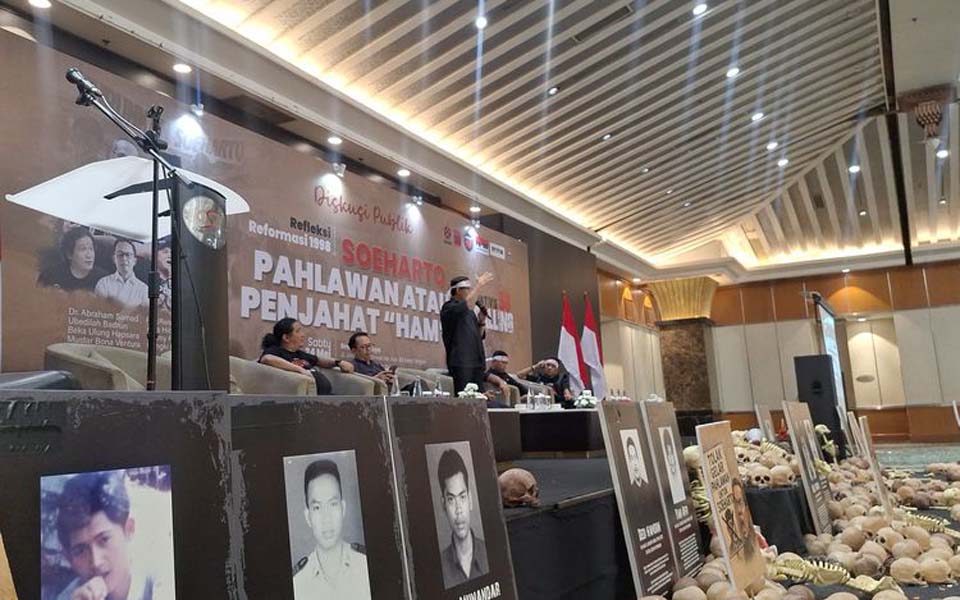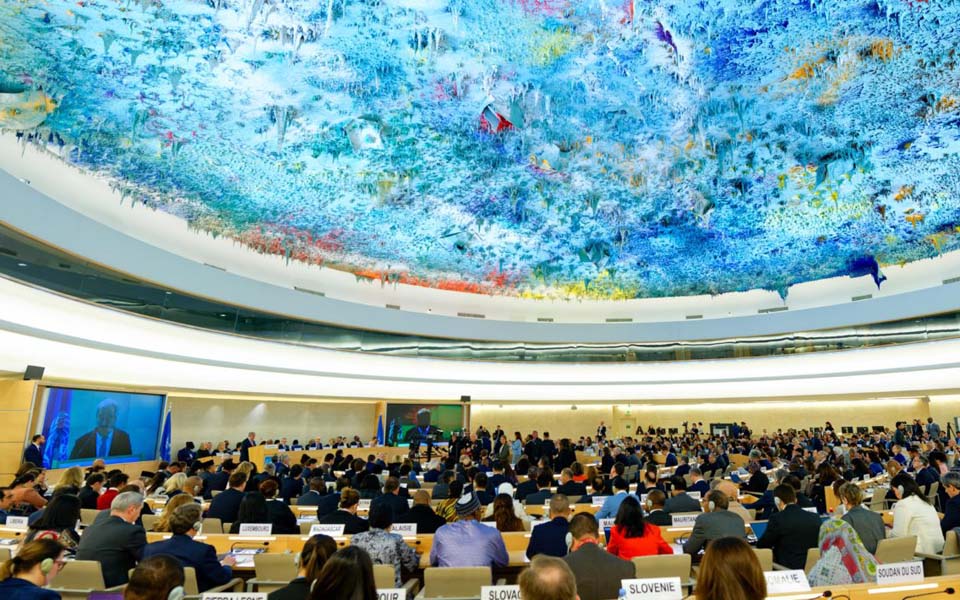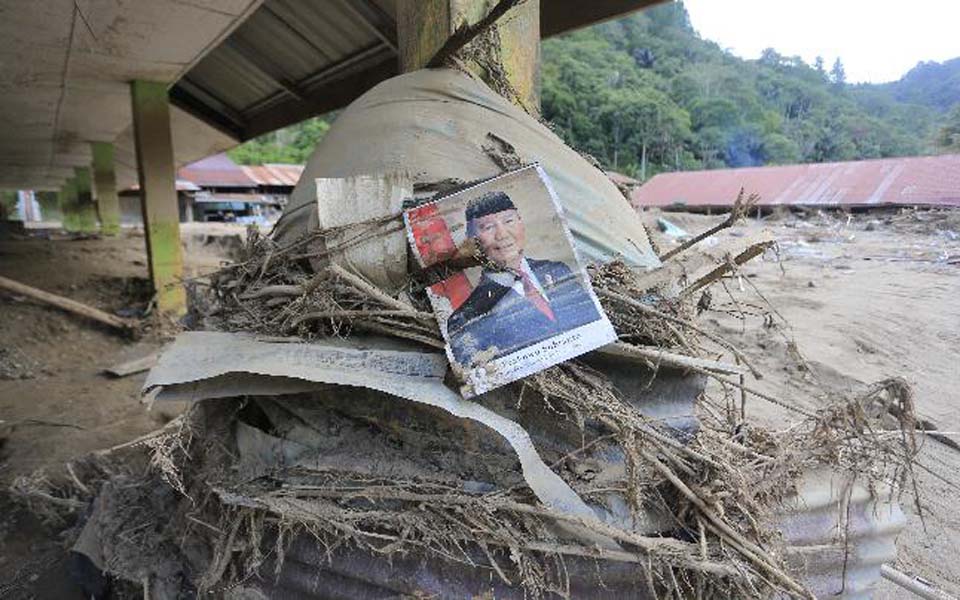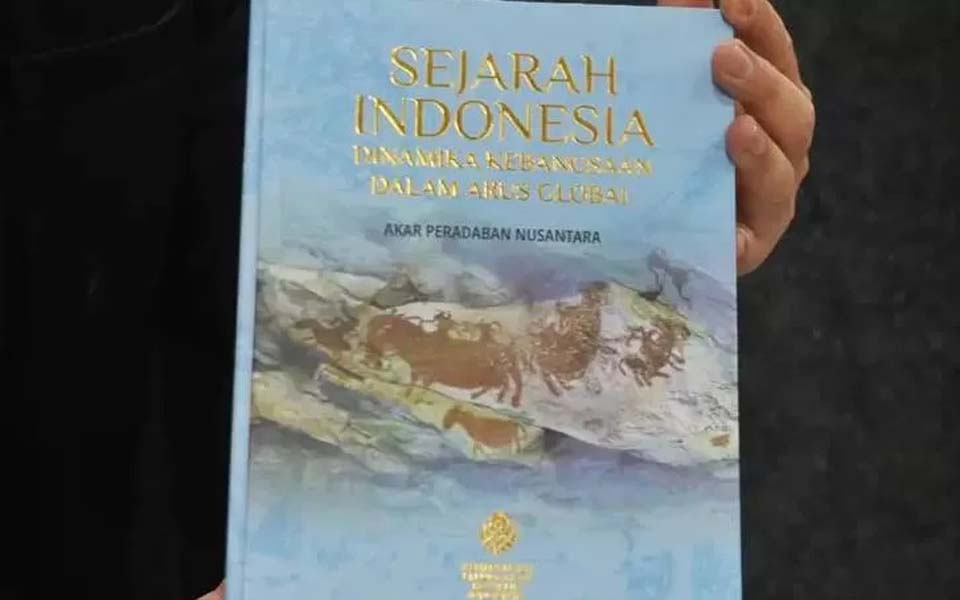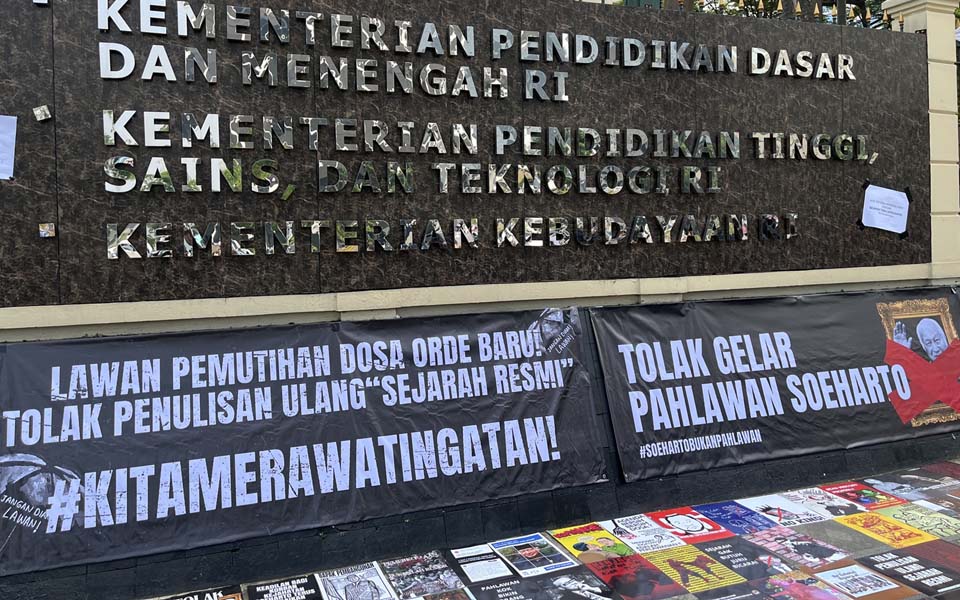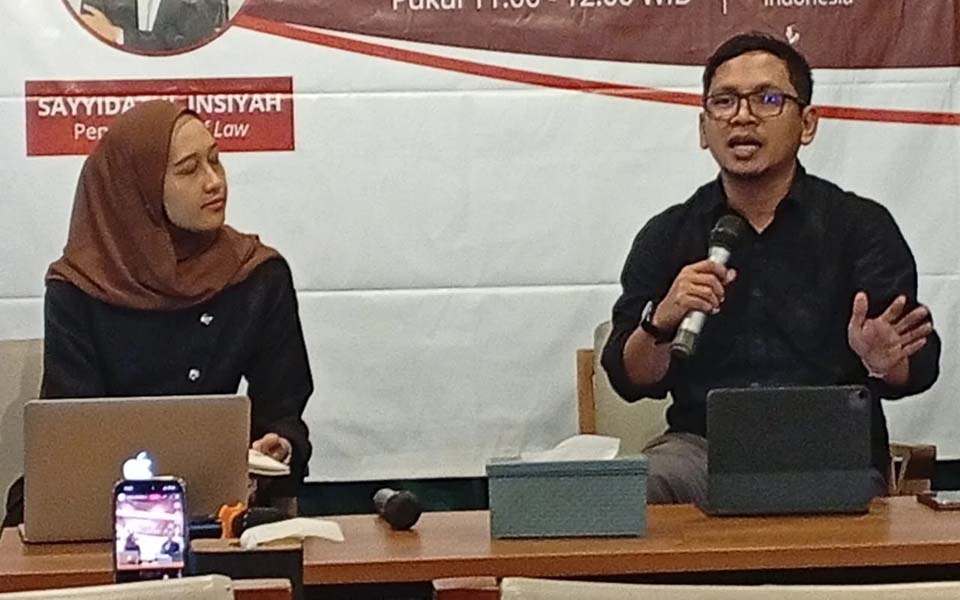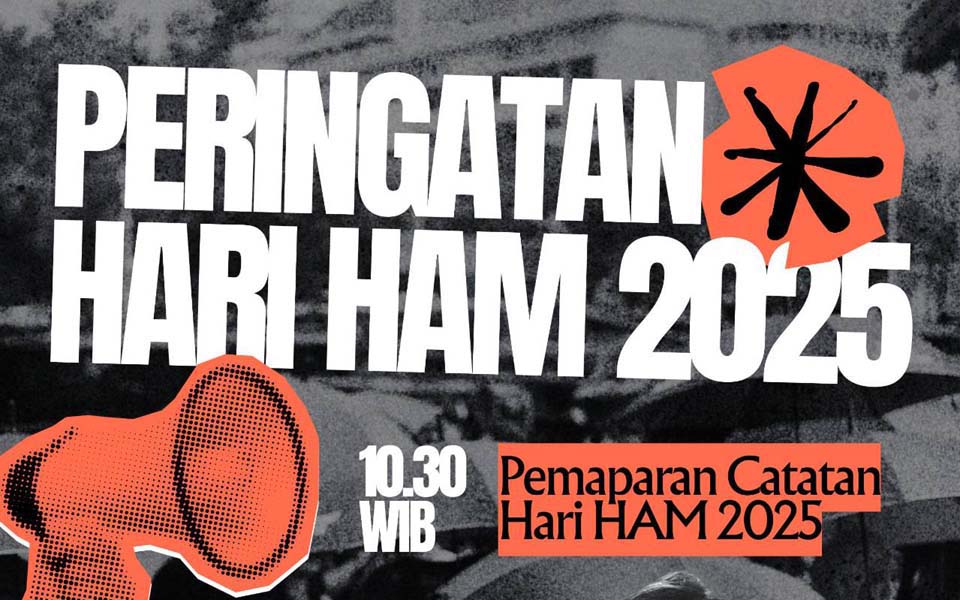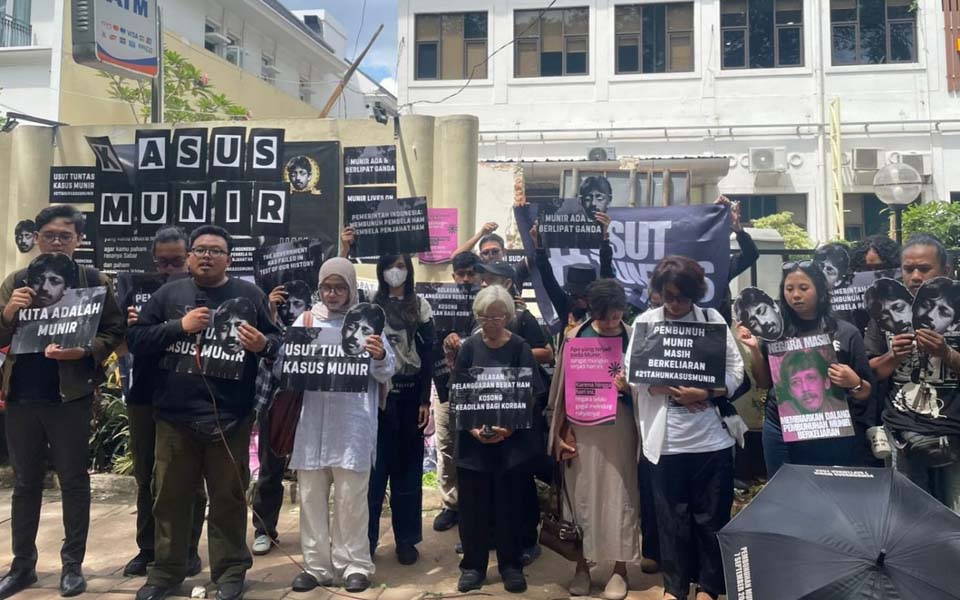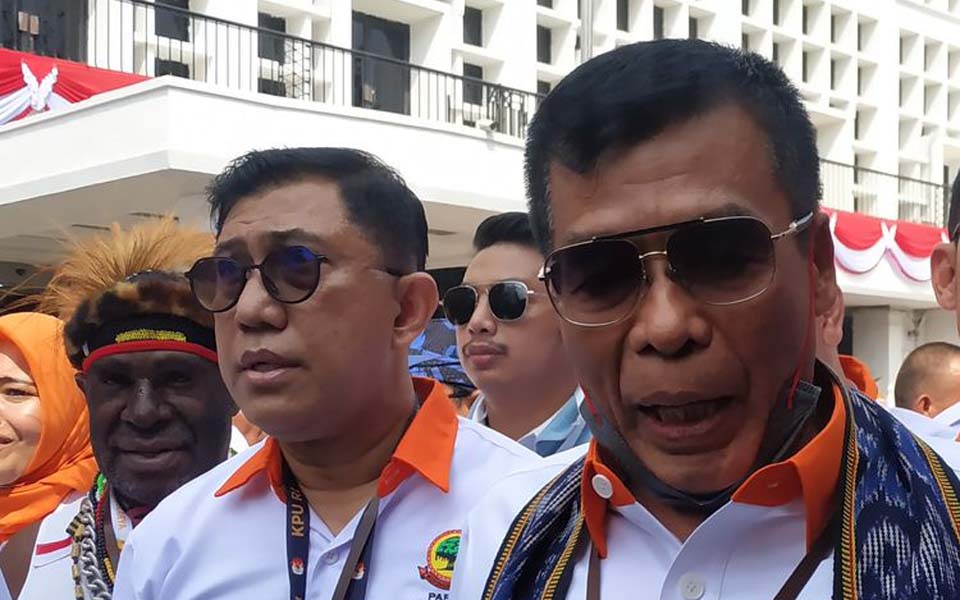Danu Damarjati, Jakarta – Thousands of imitation skulls were scattered around a hotel in Jakarta on Saturday May 24 as a symbol of how dark and terrifying the New Order era of former president Suharto was. The imitation skulls were arranged by the committee organising a discussion by hundreds of '98 activists who overthrew the New Order in 1998.
Those present were from the Volunteers for Democratic Struggle (Repdem), Barikade '98, the National Association of 1998 Activists (Pena '98) and FK '98, who had gathered to hold a public discussion under the theme "Reflecting on Reformasi 1998: Suharto, Hero or Human Rights Criminal?".
"So, the symbolism of the skulls and bones is that in the past there was Petrus [the mysterious shootings], the abduction of activists, then land cases, [the murder of trade union leader] Marsinah, [the enforced disappearance of] Wiji Thukul, and so on, the Kedung Ombo [dam project]. So many citizens or Indonesian people have not been found to this day", said Jakarta National Institute of Science and Technology (ISTN) '98 activist Jimmy Fajar Jimbong at the location.
Discussion committee chairperson Simson said that they are trying to sharpen the public's memory so that they will not forget the ideals of reformasi – the political reform process that began in 1998. He emphasised that the '98 activists reject the government's proposal of giving the title of national hero to Suharto.
"Especially with the current buzz about giving the title of hero to Suharto, we firmly reject it. We strongly reject appointing Suharto as a hero", said Simson.
Is it appropriate to name Suharto a hero?
Speaking at the forum, National Human Rights Commission (Komnas HAM) Chairperson Anis Hidayah questioned the government's discourse on designating Suharto as a national hero. He sees that the discourse is at odds with reformasi and even the country's constitutional values.
"So, I think it's important to return the question to all of us. Is it appropriate? I ask my friends who are present this afternoon, is it appropriate that someone who then pushed us all to give birth to reformasi is then be given the title of hero?", asked Hidayah.
According to Hidayah, the reason society at that time pushed for reformasi was because the Suharto's leadership was dictatorial and deviated from the goals of the founding of the country as stated in the Constitution.
The Suharto administration actually gave rise to various kinds of damage and distanced society from social justice. "Why did our nation pursue reformasi 27 years ago? I think it's very clear, [because of] how dictatorial the leadership was", he said.
No justification
Meanwhile ’98 activist and sociologist Ubedilah Badrun said that Indonesia’s current situation is experiencing a decline. What is happening now with the ongoing discourse of declaring Suharto as a national hero, according to Badrun, is far from the hopes of reformasi.
"The question is, is Suharto, who was once named a corruption suspect, worthy of being called a person with high integrity and a role model for this nation?", asked Badrun.
He then compared economic growth in Indonesia post-reformasi with other countries in Asia. Several countries have been relatively successful in advancing over the last two decades. Meanwhile, Indonesia has stagnated. In the first quarter of 2025 for example, Indonesia's economic growth was only 4.8 percent.
"South Korea 27 years ago was a poor nation, but what do we see today? They have become a developed country with per capita income above 14,000 USD per year. Malaysia has now also reached 14,000 USD per year. Singapore, don't ask, Singapore is already 36,000", said Badrun.
According to Badrun, this situation has occurred due to weak legal supremacy, rampant corruption and unresolved cases of human rights violations.
He also touched on the findings of the anti-money laundering agency the Financial Transactions Reporting and Analysis Centre (PPATK) which stated that around 900 trillion rupiah of the state budget has allegedly been corrupted. "Just imagine. Almost 30 percent of the state budget is corrupted, what kind of country is this?", he asked.
Furthermore, Badrun explained that Suharto was not only recorded in history as a human rights violator. He was even indicted for corruption in a legal process in 2000. The Supreme Court's decision at that time stated that the state suffered losses of 4.4 trillion rupiah due to the Suharto corruption case.
"How is it possible that someone who has been stained with blood and people's lives, and has been legally determined as a corruptor, can then become a hero? That is a substantive argument", said Ubed.
Authority lies with the Palace
Responding to this issue, the Deputy Minister of Social Affairs (Wamensos) Agus Jabo Priyono said that the authority to grant the title of national hero to Suharto lies with the Palace. According to him, the Ministry of Social Affairs (Kemensos) only has the authority to propose names for the title.
"So the Ministry of Social Affairs only makes a proposal, the final decision will be made by the Palace", said Priyono when speaking to reporters in the Menteng suburb of Central Jakarta on Saturday.
Agus said that the Ministry of Social Affairs has processed all proposals received through the Central Titles Research and Assessment Team (TP2GP) and this included Suharto's name that was submitted by several parties.
"I haven't checked (the update). So, the Ministry of Social Affairs itself created an ad-hoc team called the TP2GP, a review team, a research team, for awarding titles, you know", said Priyono.
The deadline for proposing names for the title of national hero is the end of May. After that the TP2GP will hold a hearing to conduct an assessment. The team will test candidates' track record and contribution to the history of the country.
"By the end of May, the proposals from the regions that were sent through by the governors should be final. And hearings will be held at the ad-hoc team later to assess, review and examine who is entitled to receive the title", he said.
[Translated by James Balowski. The original title of the article was "Ramai-ramai Tolak Soeharto Jadi Pahlawan".]
Source: https://nasional.kompas.com/read/2025/05/25/08163481/ramai-ramai-tolak-soeharto-jadi-pahlawan





